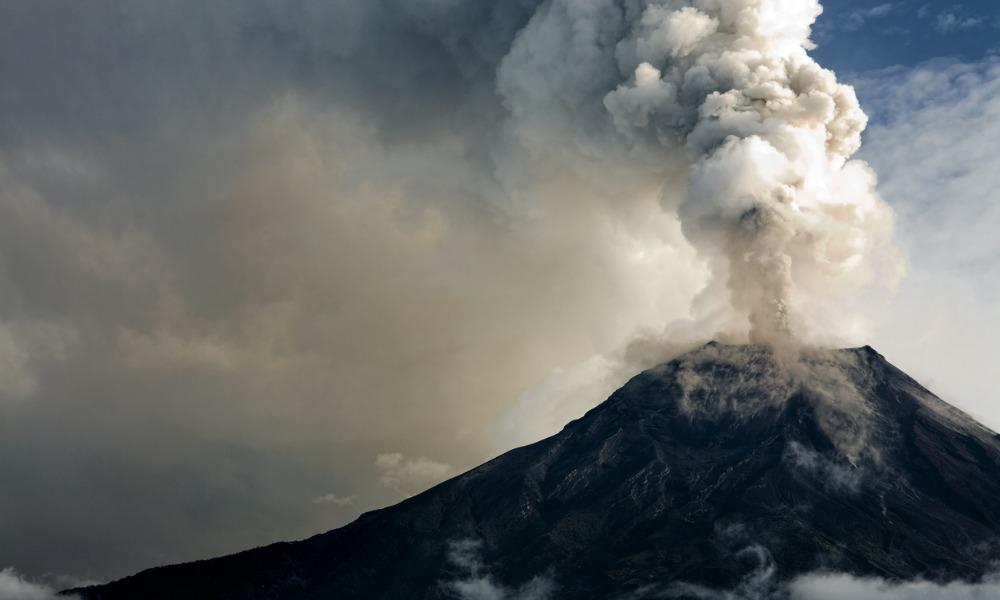Researchers pelt houses with rocks to test how they’d stand a volcanic eruption

To test how much damage a volcanic eruption can cause Auckland homes, a team of researchers have used a purpose-built pneumatic cannon to fire rocks at mock houses, built to Auckland’s building code.
Thomas Wilson and Nicole Allen, of the University of Canterbury, found that under some scenarios, houses withstood the attack well enough, possibly because they had been built to become earthquake resistant.
Read more: New Zealand vulnerable to "even a modest rise in interest rates" – research
The study showed that the houses were able to hold a “vast” amount of ash on top of them without collapsing, and that a deposit of some six centimetres of ash on a roof could serve as a “cushion” to protect the house from the impact of boulders, Stuff reported.
What this finding teaches homeowners is that they should not be in a rush to remove ash from their houses following an eruption, Wilson said.
“The risk of you getting up on your roof while it’s raining boulders outweighs the risk of your house collapsing due to ash buildup,” the lead researcher told Stuff.
Wilson advised homeowners, however, to disconnect downpipes from houses to prevent ash from clogging storm water pipes or rainwater tanks.
The study revealed that houses without a layer of ash suffered serious structural damage when hit with boulders, as expected. In this scenario, ash would get into the holes in the house, which could substantially push up repair costs.
Read next: Kiwis with advisers end up significantly better off - research
Wilson said the study would help assessors to estimate how much it would cost to repair Auckland houses in the immediate aftermath of an eruption, Stuff reported.
Devora, Auckland’s volcanic risk agency, said there is a 5-15% possibility of a volcanic eruption in the city within a given lifetime.
“It is a low probability but a high-consequence event. It’s worth being prepared,” Wilson said.
He said that although it was impossible to predict when the next eruption in Auckland would be, it was possible to model its effects.
The event would inflict devastating damage in the immediate area around the blast site, which would need to be evacuated, Wilson said.
The study would be more relevant to houses further away from the blast site, which could be pelted by boulders blasted into the air and ash picked up by wind, Stuff reported.



